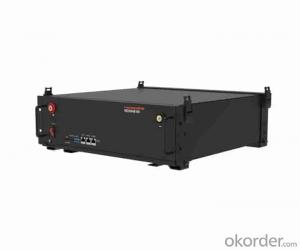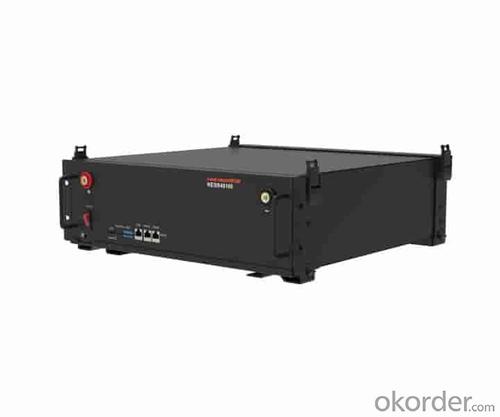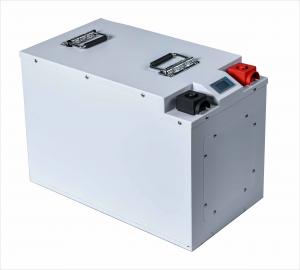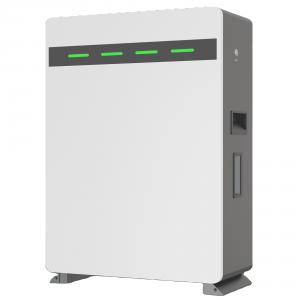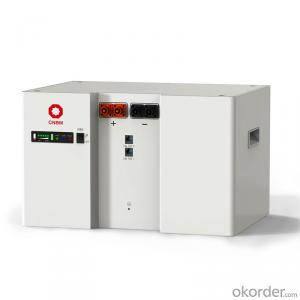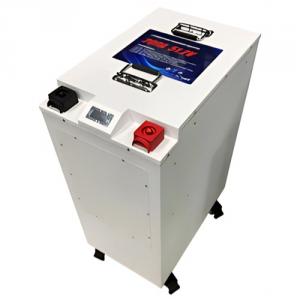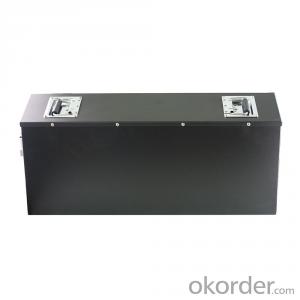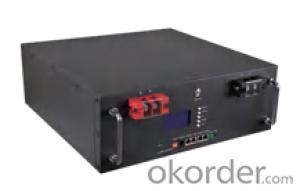Narada 51.2v lifepo4 20kw 10kw off grid lithium battery for homehold solar energy storage system
- Loading Port:
- SHANGHAI
- Payment Terms:
- TT OR LC
- Min Order Qty:
- 50 set
- Supply Capability:
- 5000 set/month
OKorder Service Pledge
Quality Product, Order Online Tracking, Timely Delivery
OKorder Financial Service
Credit Rating, Credit Services, Credit Purchasing
You Might Also Like
Specification
Application:
Home
Output Voltage (V):
51.2v
Work Time (h):
8 hours
Introduction:
Solar energy preferably used by domestic appliances, and additional Energy is stored in battery.
During the day, when battery is fully charged, the additional energy produced by solar can be sold and fed into the public .
At evening, the energy stored in the battery supplies electriciity to the domestic appliances.
At night, when the energy stored in the battery is depleted, the public grid supplies energy to the domestic appliances.
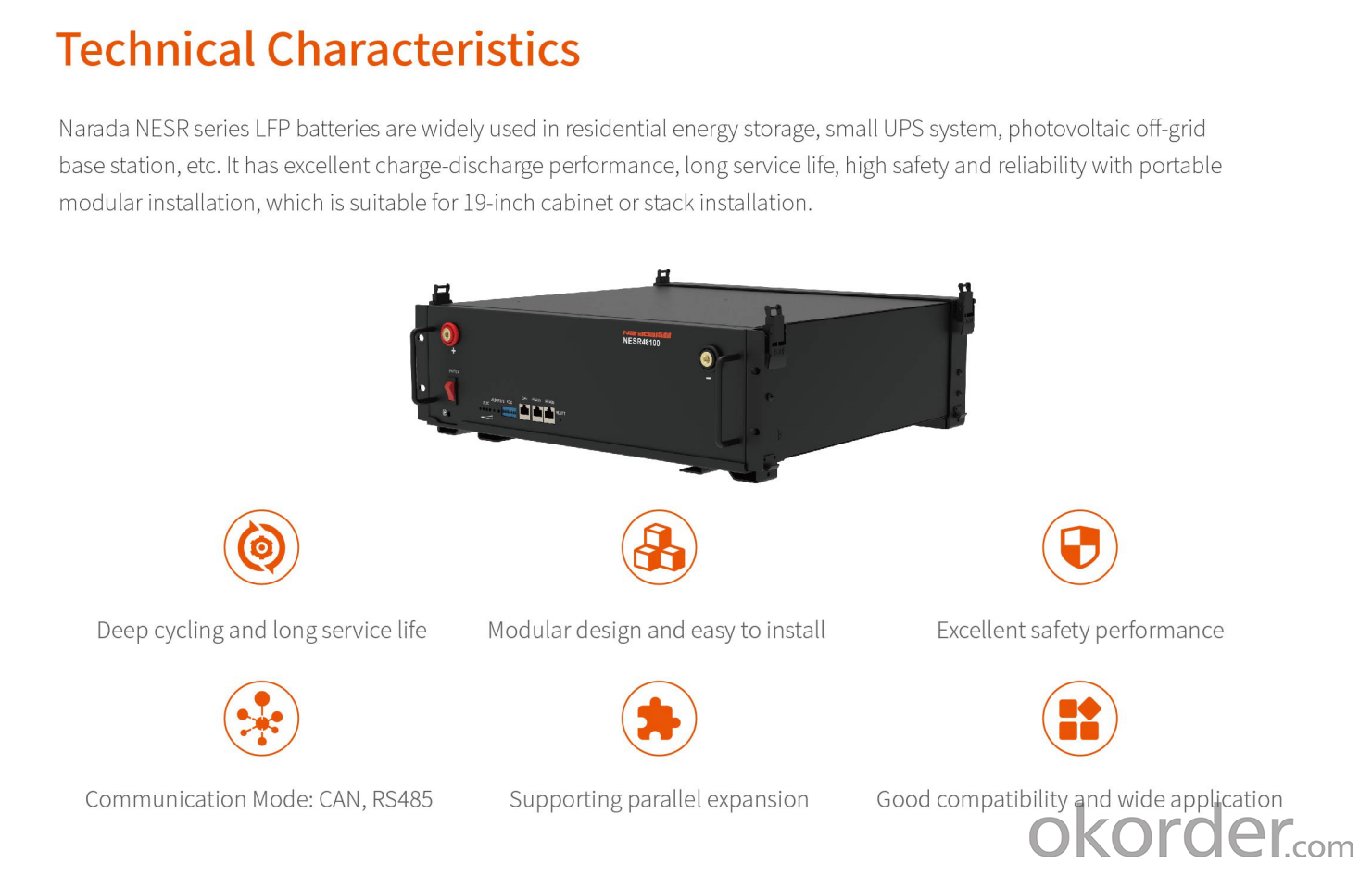
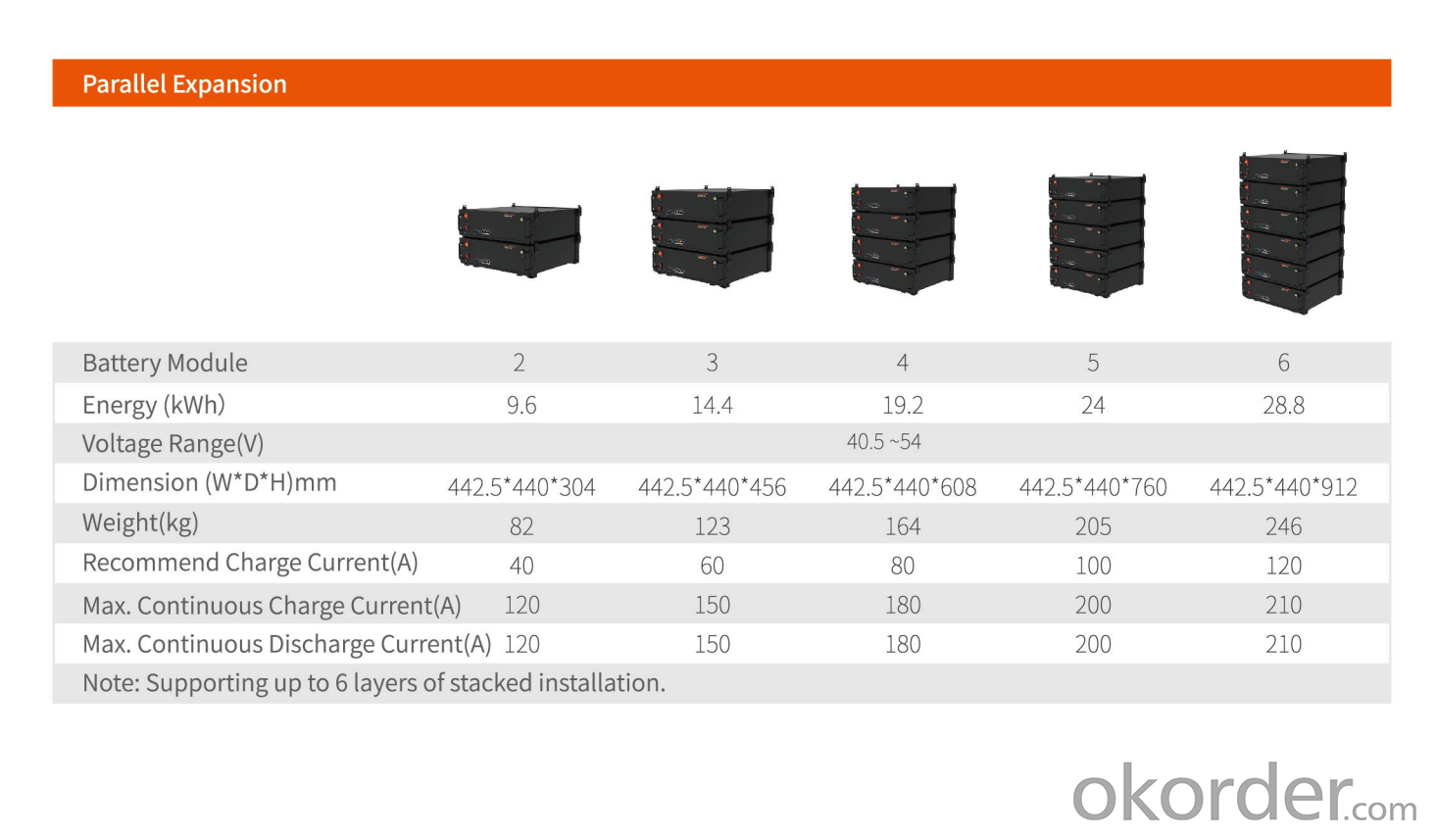
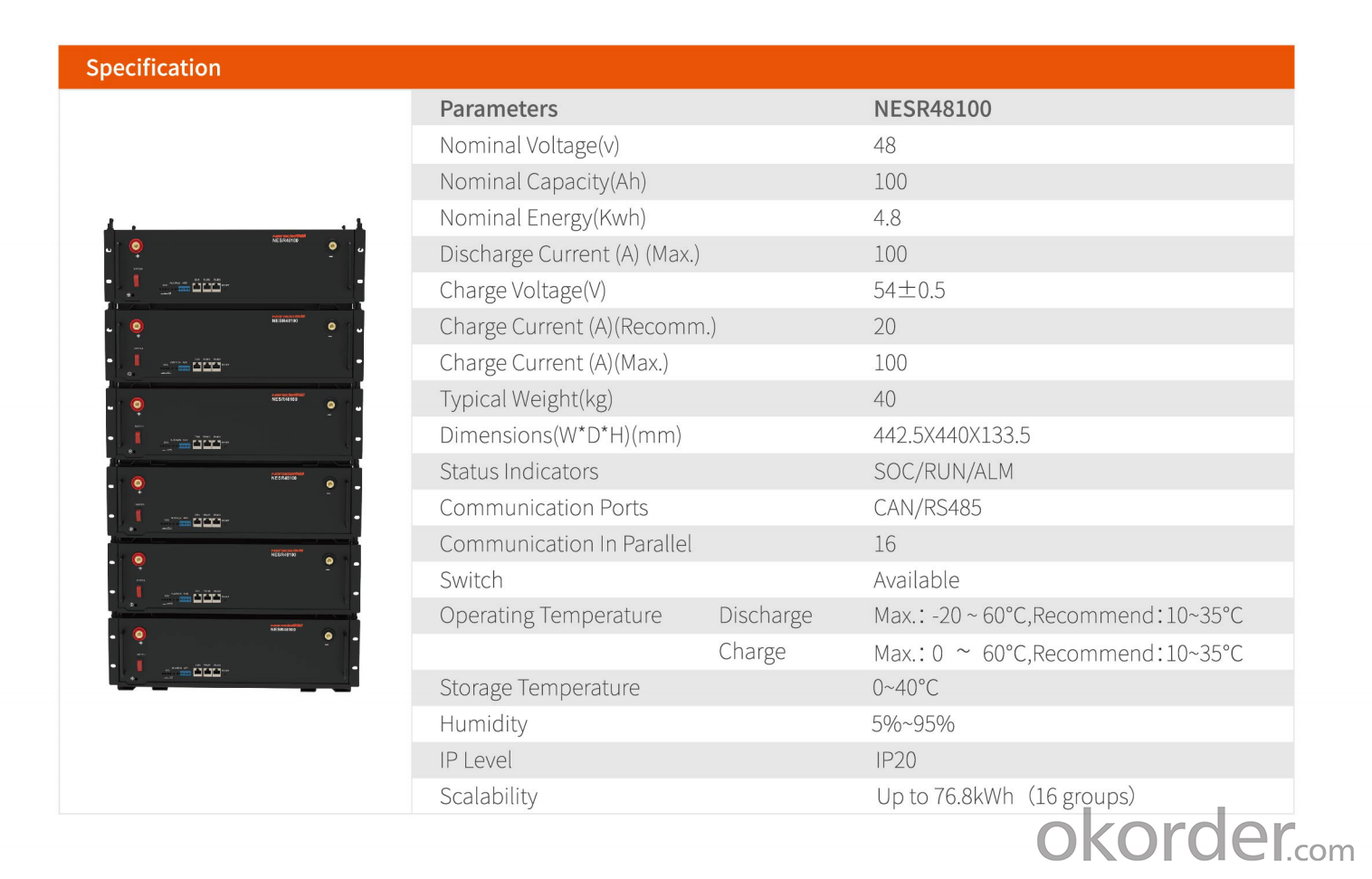
- Q: How do solar energy systems impact energy storage technologies?
- Solar energy systems have a significant impact on energy storage technologies by providing a clean and renewable source of electricity. These systems generate electricity during the day when the sun is shining, but often produce more energy than needed. Energy storage technologies allow excess energy to be stored and used during periods of low or no solar generation, ensuring a constant and reliable power supply. This integration of solar energy systems with energy storage technologies promotes grid stability, reduces reliance on fossil fuels, and accelerates the transition towards a sustainable energy future.
- Q: Can solar energy systems generate power during cloudy days?
- Yes, solar energy systems can still generate power during cloudy days. While the amount of electricity produced may be reduced compared to sunny days, solar panels can still convert diffuse sunlight into usable energy.
- Q: Can solar energy systems be used in powering shopping malls or retail centers?
- Yes, solar energy systems can definitely be used to power shopping malls or retail centers. These large commercial spaces typically have large roof areas that can accommodate a significant number of solar panels. By installing solar energy systems, these establishments can reduce their reliance on grid electricity and lower their operational costs. Additionally, solar energy systems can help reduce carbon emissions and promote sustainability in the retail industry.
- Q: Can solar energy systems be used for powering financial institutions or banks?
- Certainly, financial institutions and banks can utilize solar energy systems to power their operations. In fact, many of these institutions have already embraced solar energy as a means to meet their energy requirements. Solar energy systems offer a dependable and environmentally friendly source of electricity, diminishing their reliance on conventional fossil fuels and lessening their carbon footprint. Typically, financial institutions and banks possess large buildings with substantial energy consumption due to the numerous electronic devices, lighting, and HVAC systems necessary for their functioning. By installing solar panels on rooftops or nearby areas, these institutions can generate a substantial amount of electricity to satisfy their energy demands. Furthermore, solar energy systems can aid financial institutions and banks in reducing their long-term energy expenses. While the initial investment may be higher compared to conventional energy sources, the savings accrued from decreased electricity bills over time can offset the initial costs. Consequently, this can result in significant financial advantages for these institutions, contributing to their overall sustainability and profitability. Additionally, the utilization of solar energy can enhance the reputation of financial institutions and banks by demonstrating their commitment to environmental sustainability and renewable energy. This can attract environmentally conscious customers and investors who value businesses that prioritize eco-friendly practices. Moreover, solar energy systems can furnish a reliable power supply to financial institutions and banks, ensuring uninterrupted operations even during power outages or grid failures. This is especially critical for institutions that handle sensitive financial transactions and necessitate a continuous power supply to maintain data security and operational stability. In summary, solar energy systems can effectively power financial institutions and banks, providing a sustainable and cost-effective solution to meet their energy needs. By embracing solar energy, these institutions can mitigate their environmental impact, reduce energy costs, enhance their reputation, and guarantee reliable operations.
- Q: Can solar energy systems be used for desalination of water?
- Yes, solar energy systems can be used for the desalination of water. Solar-powered desalination systems harness the energy from the sun to power the desalination process, which removes salt and impurities from seawater or brackish water, making it suitable for various applications such as drinking, irrigation, or industrial use. These systems typically utilize solar panels to generate electricity, which then powers the desalination equipment, such as reverse osmosis membranes or solar stills, to separate freshwater from saltwater. This sustainable and renewable approach offers a promising solution for addressing water scarcity issues in regions with ample sunlight and limited freshwater resources.
- Q: Can solar energy systems be used for heating and cooling homes?
- Yes, solar energy systems can be used for heating and cooling homes. Solar thermal systems can capture the sun's heat and use it to provide hot water or space heating. Additionally, solar-powered air conditioning systems can use solar energy to cool homes by absorbing heat from the indoor air and dissipating it outside.
- Q: Are there any government incentives or rebates for installing solar energy systems?
- Yes, there are various government incentives and rebates available for installing solar energy systems. These incentives can vary based on location, but commonly include federal tax credits, state and local rebates, grants, and loans. These incentives aim to promote the adoption of renewable energy and help offset the upfront costs of installing solar panels. It is advisable to check with local authorities or consult with a solar installation company to determine the specific incentives available in your area.
- Q: What permits are required to install a solar energy system?
- The permits required to install a solar energy system can vary depending on the location and specific regulations of the area. However, there are generally a few common permits that are required in most jurisdictions. Firstly, a building permit is typically necessary for the installation of solar panels or any structural changes that may be required. This permit ensures that the system is installed safely and meets the building codes and regulations of the area. Secondly, an electrical permit is often required as the installation of a solar energy system involves the connection of electrical components. This permit ensures that the electrical work is carried out by a licensed electrician and meets the electrical safety standards of the area. In addition to these permits, some jurisdictions may also require other specific permits or approvals. For instance, a zoning permit might be necessary to ensure that the installation complies with the local zoning laws and does not violate any height restrictions or setback requirements. It is important to note that the permit requirements and processes can vary greatly, so it is always recommended to check with the local authorities or building department to determine the specific permits required for installing a solar energy system in a particular area. Working with a reputable solar installer or contractor can also be helpful as they are typically familiar with the local permit requirements and can assist in obtaining the necessary permits.
- Q: Can solar energy systems be used for powering electric vehicle public transportation systems?
- Yes, solar energy systems can definitely be used for powering electric vehicle public transportation systems. Solar energy is a clean, renewable and abundant source of power that can be harnessed to generate electricity for various applications, including charging electric vehicles. Solar panels can be installed on the rooftops of public transportation facilities, such as bus depots or charging stations, to generate electricity. This energy can then be used to charge the batteries of electric buses or other electric vehicles used in public transportation systems. The scalability of solar power systems makes them suitable for public transportation infrastructure. Depending on the size of the solar installation, it is possible to generate enough electricity to power an entire fleet of electric buses or other public transport vehicles. This reduces the reliance on fossil fuels and decreases greenhouse gas emissions, leading to a cleaner and more sustainable transportation system. Furthermore, solar energy systems can also be combined with energy storage technologies, such as batteries, to ensure a continuous power supply even during periods of low solar irradiation or at night. This allows for a reliable and uninterrupted charging infrastructure for electric vehicles. In addition to the environmental benefits, solar-powered electric public transportation systems can also lead to cost savings in the long run. While the initial investment for installing solar panels may be higher, the operational costs are significantly lower compared to traditional fossil fuel-based systems. Solar energy is free, and once the infrastructure is in place, the ongoing expenses are minimal. This can result in substantial savings for public transportation authorities over the lifetime of the system. Overall, solar energy systems are a viable and sustainable solution for powering electric vehicle public transportation systems. They offer environmental benefits, cost savings, and contribute to reducing dependence on fossil fuels. With the advancement of solar technology and decreasing costs, the integration of solar power in public transportation infrastructure is a promising avenue for a cleaner and greener future.
- Q: Can solar energy systems be used for powering hospitals?
- Yes, solar energy systems can be used for powering hospitals. Solar power can provide a reliable and sustainable energy source for hospitals, helping to reduce their dependence on the grid and lower their energy costs. Solar panels can be installed on hospital rooftops or in nearby areas to generate electricity that can be used to power various hospital operations and equipment. Additionally, solar energy systems can provide backup power during emergencies or grid failures, ensuring continuous operation of critical medical equipment.
Send your message to us
Narada 51.2v lifepo4 20kw 10kw off grid lithium battery for homehold solar energy storage system
- Loading Port:
- SHANGHAI
- Payment Terms:
- TT OR LC
- Min Order Qty:
- 50 set
- Supply Capability:
- 5000 set/month
OKorder Service Pledge
Quality Product, Order Online Tracking, Timely Delivery
OKorder Financial Service
Credit Rating, Credit Services, Credit Purchasing
Similar products
Hot products
Hot Searches
Related keywords
